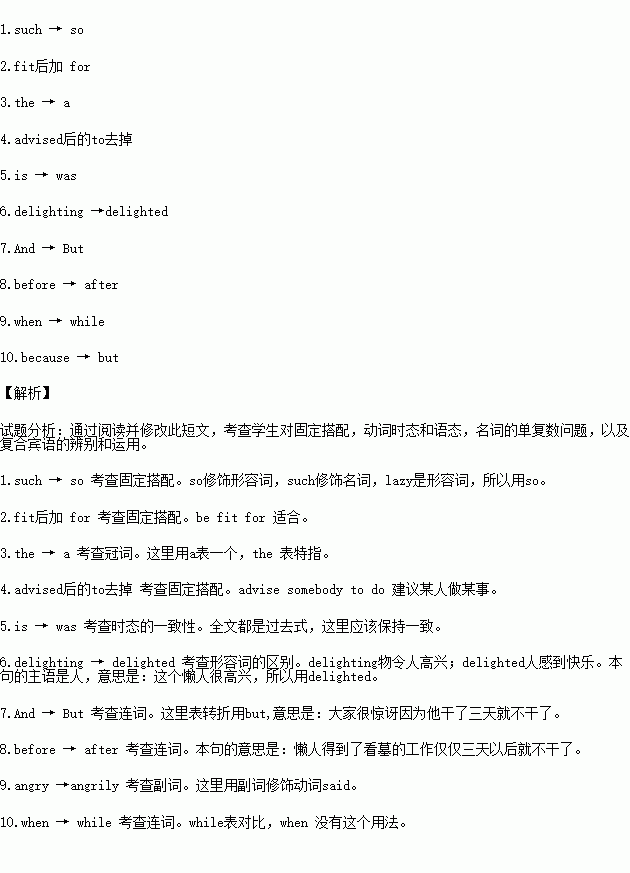题目内容
短文改错
增加:在缺词处加一个漏字符号(),并在其下面写出该加的词。
删除:把多余的词用斜钱(\)划掉。
修改:在错的词下划一横线,并在该词下面写出修改后的词。
注意:
1. 每处错误及其修改均仅限一词;
2.只充许修改10处,多者(从第11处起)不计分。
Once there lived a man who was such lazy that no job was fit him. In order to make a living he went to the neighbor of his for help one day. The neighbor advised to him to be a grave caretaker as it is the easiest job one could find. The lazy man was delighting and soon became a grave caretaker. And to everybody’s surprise he gave up his job three days before he got it. “It’s unfair.” He said to the neighbor angry. “In the grave all the others are lying still when I am the only one who has to stand.”
练习册系列答案
相关题目

